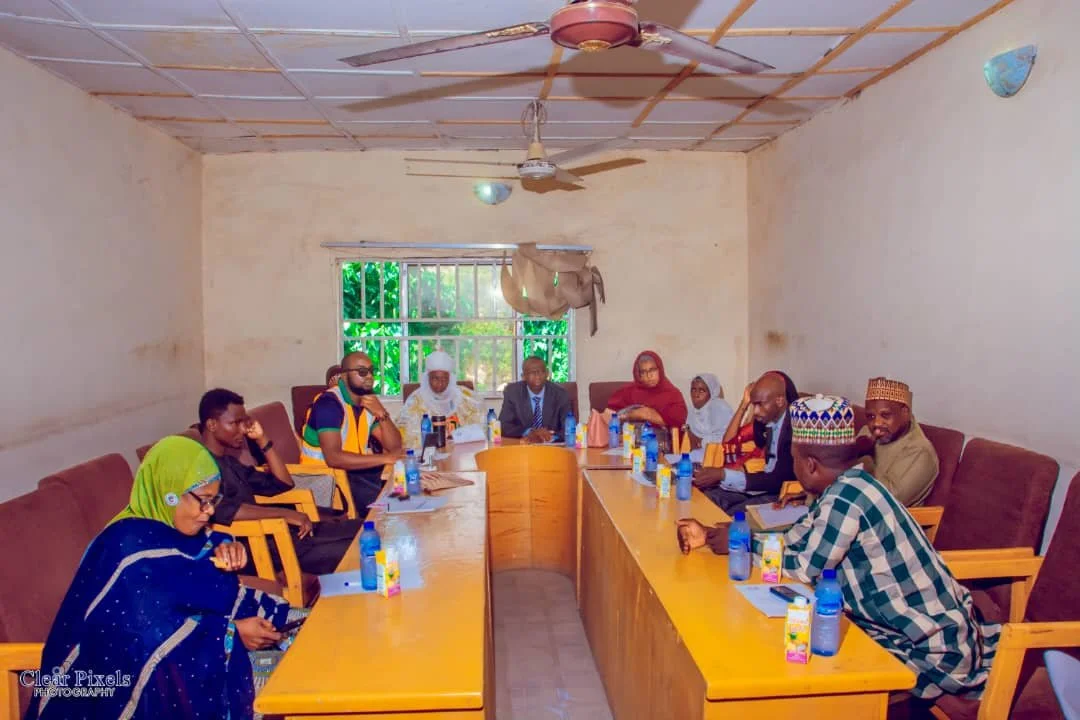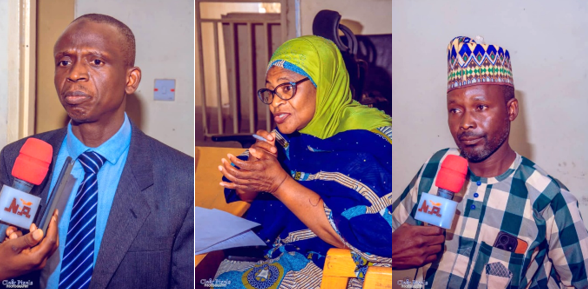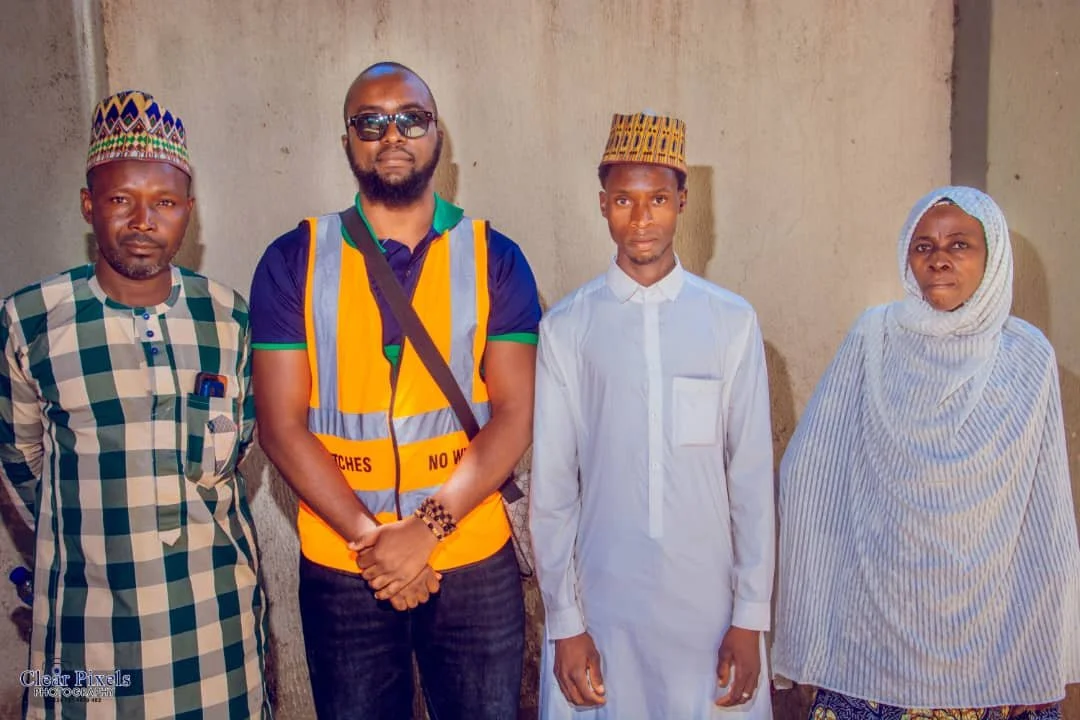Seed funding initiative in Kano
‘Participants reflected on the urgent need to uphold human dignity, challenge harmful superstitions, and foster a culture of rights and justice.’
by Chloe Prendergast
22 August 2025
Advocacy of Alleged Witches (AfAW) recently led a roundtable discussion on witchcraft accusations and human rights abuses in collaboration with the National Human Rights Commission in Kano, Nigeria. The event was funded through INAWARA’s seed funding rounds aimed at inspiring action and awareness.
Knowing the prevalence of the issue in the state of Kano, it is heartwarming to see community members come together to combat human rights abuses caused by witchcraft accusations and ritual attacks. We acknowledge the devastating impact this issue can have upon people’s lives.
The final report from the Program Manager, Dooum Dominic Ingye, is set out below - I highly recommend reading it. And keep scrolling after to see additional images from the event.
Report from the Stakeholder Engagement on Witch Hunts in Kano
‘Kano, ba a gama magana a kanta’ - meaning one can never finish speaking about Kano. Whether in terms of its size, population, commerce, ingenuity, politics, aversion to new ideas, or religious extremism, the old city remains a fascinating paradox: rich in history yet burdened by harmful traditions, especially witch hunts. Against this backdrop, the Advocacy for Alleged Witches (AfAW), in collaboration with the National Human Rights Commission (NHRC) Kano Office, convened a timely engagement on witchcraft accusations and human rights abuses on July 21, 2025, at the NHRC Kano Office.
The event brought together CSOs, activists, legal experts, victims of witch hunts, religious and community leaders to confront the persistent and often deadly consequences of witchcraft accusations in Kano and beyond, a menace that disproportionately targets vulnerable groups such as women, children, and the elderly. Participants reflected on the urgent need to uphold human dignity, challenge harmful superstitions, and foster a culture of rights and justice.
The event commenced with opening remarks from the Coordinator of the NHRC Kano Office, Shehu Abdullahi, who expressed appreciation to AfAW for organizing the event. He decried the prevalence of witch hunts in Kano, which particularly affect women, children, and the elderly, and welcomed the roundtable discussion as a way to draw public and institutional attention to the ongoing crisis.
Through the Program Manager of AfAW, Dooyum Dominic Ingye, the National Director’s message was presented to participants. The statement highlighted the urgent need to address witch hunts and related human rights abuses in Nigeria and Africa. It condemned the widespread persecution driven by harmful superstitions, especially in places like Kano, and stressed that belief in witchcraft does not justify abuse. The message called for legal accountability, public education, and collaboration with human rights bodies to end these violations, honor victims, and support survivors.
In his presentation, Ingye emphasized the prevalence of witchcraft accusations and the associated human rights abuses, particularly in Kano and other parts of Nigeria. He stressed that witch hunts are rooted in superstition, not evidence, and often target the most vulnerable. He also highlighted AfAW’s mission, founded by Dr. Leo Igwe, to combat these abuses through public education, legal support for victims, stakeholder engagement, and advocacy for policy reform. The call was for collective action to end these atrocities and uphold justice, reason, and human dignity.
One of the victims, Hadiza Umar, shared her experience. A misunderstanding with a woman in her community led to her being falsely accused of witchcraft. Although the woman's relatives later admitted she was at fault, the accusation had already damaged Hadiza’s reputation. Eventually, the matter was resolved, and the woman apologized personally. Since then, they have resumed normal interaction.
The sons of Naharatu Abubakar, a woman who was murdered after being accused of witchcraft, also recounted their ordeal. Her son, Sadiku Yahaya, explained that their family had no history of witchcraft. His mother, a respected woman, returned to their hometown to work on his farm while he was away in Port Harcourt. When a girl in the town fell ill, his mother was falsely accused. Her accusers stormed the farm, dragged her home, and killed her. Despite calls for revenge from some relatives, the family chose a peaceful path and took the matter to court. The Audu Bako Road Court handled the case, arrested the culprits, and issued a death sentence. Although the accused appealed, the family remained confident in the legal process. They also went on air to raise awareness and advocate for reliance on lawful means to seek justice.
Several stakeholders made critical contributions. The FIDA Chair, a retired judge, emphasized the urgent need to tackle harmful cultural practices that violate human rights and dignity. She stressed the importance of empathy and values grounded in natural justice, equity, and good conscience, which are still relevant in Nigeria today. She proposed a structured action plan focused on sensitization and awareness, particularly in communities where such practices are prevalent. The plan would leverage social media and direct community engagement, ensuring that awareness is raised without escalating tensions. This sensitization initiative will be led by AfAW and the NHRC Kano Office. The Chair advised the formation of a monitoring committee (by AfAW & NHRC) to review cases, especially those involving women and children, and forward them to her office for the facilitation of investigations and prosecution.
She also emphasized the importance of peaceful dialogue and collaboration with stakeholders, including councilors and traditional leaders. She noted the connection between human rights violations and societal unrest, explaining that witch hunts and other cultural abuses often lead to conflict and displacement. She called for strengthening the response of magistrate courts and local authorities, citing her own extended involvement in similar cases. Addressing challenges within the legal system, she underscored the need for better training for police officers and a more compassionate approach to case management. Drawing from her experiences, she highlighted gaps in accountability and the struggles victims face in being recognized and supported as survivors.
She concluded with a passionate appeal for collective community responsibility in promoting peace, particularly in areas most affected by these harmful practices. She advocated for sustained dialogue and collaboration to reduce tensions, combat poverty, and ensure enduring peace and justice.
The traditional head present acknowledged that most witch hunt cases originate in rural areas, urging AfAW and NHRC to sponsor community outreach programs to educate residents where ignorance continues to fuel harmful beliefs. The President of Women for Security and Development echoed this, stressing the need for outreach in communities where women and children are disproportionately affected.
Representatives from the Ministry of Justice and the Ministry of Women Affairs commended the town hall meeting and acknowledged the high prevalence of such cases in Kano State. They explained that the legal system in Kano, based on the penal code, makes successful prosecution difficult. Witch hunts, often regarded as defamatory offenses, are categorized under compoundable offenses, where perpetrators may escape prosecution with a mere apology, unless the case is especially severe. They called for a legal review to better protect accused persons and to serve as a deterrent to future witch hunts.
Other stakeholders expressed deep concern over the frequency of these cases in Kano State and called on AfAW to extend outreach efforts to rural communities, where superstition and ignorance remain deeply entrenched.
The event concluded with a group photograph, symbolizing solidarity and shared commitment to ending witch hunts and upholding human rights in Kano and beyond.
AfAW thanks the International Network against Accusations of Witchcraft and Ritual Attacks for supporting the event.
Dooyum Dominic Ingye
Program Manager, Advocacy for Alleged Witches











